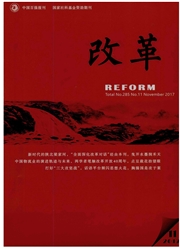

 中文摘要:
中文摘要:
利用我国民营上市公司2007~2011年数据为样本,就不同融资约束程度下异质债务对过度投资抑制作用的差异性进行研究发现,银行借款和商业信用都能够抑制过度投资,银行借款对过度投资的抑制作用强于商业信用;高融资约束下,银行借款能够抑制过度投资,商业信用没有起到抑制过度投资的作用;在低融资约束下,银行借款和商业信用都能够抑制过度投资,但商业信用对过度投资的抑制作用要强于银行借款。实证结果还显示.我国民营上市公司激励机制能够有效抑制过度投资,而法人治理结构的监督机制实施的效果有限。
 英文摘要:
英文摘要:
By taking the data of private listed corporation during the period of 2007 to 2011 as samples, and through the study of the otherness of the contingent governance function of the different nature of debt under different degrees of financing constraints, we find that both the bank borrowing and the commercial credit can restrain the over-investment behavior, and the former has a greater inhibitory action than the latter. In higher financing constraints, the bank borrowing can restrain the over-investment behavior significantly while the commercial credit cannot. In lower financing constraints, however, both the bank borrowing and the commercial credit can restrain the over-investment behavior significantly, while the latter has a greater inhibitory action than the former. In addition, the empirical results show that the excitation mechanism can restrain the over-investment effectively while the corporate governance structure can only play a little role of inhibitory action.
 同期刊论文项目
同期刊论文项目
 同项目期刊论文
同项目期刊论文
 期刊信息
期刊信息
